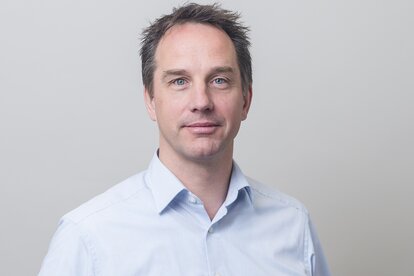Many say the COVID-19 pandemic is a marathon. And, like a marathon, many people focus on themselves and the finish line. And they tune out almost everything else. That's perfectly understandable. And yet we cannot ignore the devastating consequences of climate change, conflict and rising poverty.
What can we, as an internationally active development organization, contribute to a better future? We had almost answered this question in spring 2020 for the new Helvetas Strategy 2021-24. But COVID-19 brought brutal setbacks for development problems and global challenges where we were seeing progress. Poverty and malnutrition are again increasing instead of decreasing, supply chains are breaking down, closed schools are jeopardizing the future opportunities of an entire generation, and autocratic governments are using restrictions to limit democratic rights, to name just a few examples.
That's why we have sharpened our strategy once again in light of the social, health and, above all, economic consequences of COVID-19. After all, development can only take place where people do not have to fight for survival every day, but can plan for the future. Young people in particular increasingly see their future in the cities, where they hope to find better opportunities for education and income. However, cities are not only drivers of development and places of opportunity, but also hotbeds of new forms of poverty — a new focus area of our work. The impact of climate change on disadvantaged women and men remains high on our list of priorities. And fundamental issues such as food security, water supply and disaster relief also remain important. Together with our partners, we are looking for long-term solutions that are locally anchored. Mobile communications and digital innovation will play an increasingly important role in this, as will working with local governments and alongside people who migrate to secure themselves and their families.
But global problems can only be solved through global collaboration. Without a global immunization strategy, COVID-19 will constrain us for a long time to come. Without a resolute response to climate change, people in the global South will suffer — but so will the rest of the world. Without a solution to the conflicts in Syria, Yemen or Ethiopia, no country will be spared refugee crises. The global community can and must work together to find global solutions. COVID-19 has shown us how directly these challenges affect us. But we all have to think further than the finish line of the marathon.


